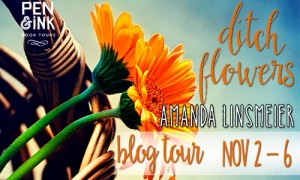Amanda Linsmeier on writers and writing groups…
Writers are typically seen as introverts and loners. Despite that image, and whether or not it’s true individually, we can benefit greatly by working together. I’m talking about critique groups.
Now, critique groups are kind of like therapists. You can’t just go to any group and expect it to be a good fit. Sometimes, it works out in the first try, and other times you have to keep looking for someone who you are comfortable, and compatible, with. If you’re not, it won’t be a productive time.
I joined my first writers group in 2007 or 2008. That group morphed into many different versions before I actively looked for a new group. From there I found one more option, and then another, and then another. The writing group I’m currently active in is the best fit so far. What happened to the other groups? Why didn’t they last? And what can I, and you, take from these experiences? What exactly is the benefit of these groups?
The first group I was in started with a good twenty people. We would go around the room at the public library (which we paid a small fee to use, so we collected dues) and read a snippet of something we’d written, set to a timer so as not to take up too much time. Then everyone would give a bit of insight. This was on the spot, never planned ahead. We were a formal group, with bylines, and voting, and even officers. This group was set to once a month and open to the public. Sometimes there’d be just the core members- a regular five or six of us- and other times there’d be a lot more. I might see someone one month, and they not show again for a year. This group has eventually become a group of three or four. I am the only founding member remaining, and I don’t show often because the timing isn’t convenient for me. But I am thankful for everything I learned whilst in this group.
Group #2, #3, #4 were all short-lived but productive. It was varying sized female-only groups that met at each other’s houses, or occasionally coffee shops. We sent work and wrote critiques ahead. None of these groups lasted because various members would drop out, one at a time. Only two members migrated through all of these together- myself, and my pal Tara.
Within the last year Tara and I joined a new group. There are five of us- four women, and one man. We meet once a month at a set time and place. We send work ahead, roughly 2,000 words or less. We write in different genres mostly. There is science fiction, women’s fiction, poetry, creative non-fiction, and more. At the beginning of our meeting we have some time to chit-chat, and talk about writing accomplishments or news. Once we start with the critiques we don’t set a timer but have a rough idea of how long to talk. We don’t generally read our pieces aloud, but just begin with critiques. We try to adhere to the rule that the person being critiqued does not speak, argue, or explain during these times, but instead waits until everyone is finished. We are respectful, and honest. Going to writers group every month is a highlight for me. I genuinely like everyone in the group, appreciate their talent, and take their comments and suggestions into consideration.
This group I’m in, the wonderful WAG, works for many reasons for me. I like sending work ahead. I like reading the others’ work in my own home, on my own time, and formulating my critiques thoughtfully and not on the spot. And I like that the members of my group are serious about it, and enjoy it as much as I do.
I think the reason many writing critique groups fail is for a couple reasons. If members do not have the same expectations, someone will inevitably feel disappointed. While we were forming WAG, we set a meeting just to discuss what we wanted from it and each other, what was okay and what wasn’t okay, and that’s how the group came to be what it is. I like that we have the same members each meeting, without public drop-ins. We get to know each other’s style and genres, and we get comfortable giving and receiving criticism.
I can’t stress enough that members need to be on the same page (pun intended?) as far as dedication. If Member A only wants to swing by when they have nothing else better to do, and Member B is always cancelling last minute, and Member C shows up diligently every meeting, there is going to be an imbalance and the group will fail.
It’s also extremely crucial that respect is given and received by each member. In the first group I was in, I bristled every time one person spoke to me. I felt the tone condescending, and this person was never positive in his critiques of my work. He would frequently question me, and I felt defensive and embarrassed. It’s also important to enjoy the other peoples’ work. My WAG group members all damn good writers, and can interest me even in something that might surprise me.
Writing critique groups have helped shape me as a writer. They’ve given me confidence in work I might have questioned, and helped open my eyes to work I thought was a-okay. I have revised and edited work and improved so much because of thoughtful comments from former and current group members.
If it’s possible, join a live group in your area. If there aren’t any, try forming them through your local library or bookstore. See if your state has a writers association to sponsor the group, or go to conferences to see if there’s any leads there. If you can’t find any groups IRL (in real life), try finding one online. Narrow down your search to genre specific if it’s too broad. Find people you respect, who are courteous, whose work you enjoy reading. Be honest with yourself about your expectations, and be open to receiving criticism on your work. It might not always be easy, and it might hurt your feelings, even with the best critique partners, but it can also be beneficial in ways you may not expect.
Critique groups and the comradery I’ve experienced by being a part of a community of people who love to create as I do, has shaped me into the writer I am today. I look forward to my next meeting and can’t wait to see what everyone submits. It’s a joy to be a part of, really. And I’m so glad I found a group that fits.
*****
Amanda Linsmeier’s work has appeared on Brain, Child Magazine, WOW! Women on Writing, and Portage Magazine.
She works part-time at her local library and brings home more books than she has time to read. Amanda lives in the countryside with her husband and children, two dogs, and half-wild cat. Ditch Flowers is her first novel.
Website ~ Blog ~ Facebook ~ Twitter
Trouble comes in threes, Grandma CeCe always said…
A baby. Just holding one sets Julia’s heart thumping. She’s wanted a child for so long. When she finally gets pregnant, she’s bursting to tell the world…until a checkup from the doctor confirms a miscarriage.
Julia’s world feels like it’s dissolving. This second tragedy following her father-in-law’s death, shakes her and her husband Greg. To support his mother, they uproot their lives and move to Greg’s childhood home. Under the bright Midwestern sky, Julia can feel a new world and new hope beginning.
But trouble comes in threes, and soon a boy shows up at Julia’s new daycare whose blue eyes and freckled face look eerily like Greg’s. Despite her love for her husband, Julia finds her thoughts haunted by the boy’s face, and she can’t shake the feeling that her husband has a secret.


Thanks for having me!